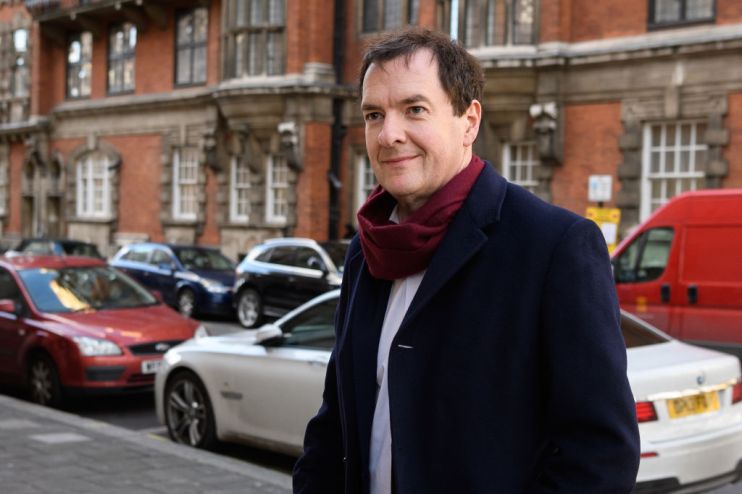Austerity architect George Osborne: UK faces ‘hard choices’ after borrowing surge

Former chancellor George Osborne has said the government will in the next “two or three years” need to lay out a plan to “bring balance” to the budget, after data showed that borrowing soared in April.
Osborne sharply divided opinion in the UK as the primary architect of post-2008 austerity, which slashed spending in an effort to reduce the debts incurred after the financial crisis.
The current Conservative government hailed the end of austerity at its pre-coronavirus March budget. Prime Minister Boris Johnson has since said cutting spending will not be “part of our approach” for the economy.
Official figures today showed that public borrowing hit a record high of £62bn in April as the government put the economy on life support. Its job retention scheme is estimated to cost around £14bn per month.
Osborne today said these figures meant Britain will have to “come to terms with the fact that [the country] is poorer than we thought it was”.
He said the soaring deficit – the gap between government tax receipts and its spending – “will lead to hard choices about what we can afford, how much we want to spend and how many taxes we want to raise to pay for it”.
He said these choices would have to be made in the next “two to three years”. Osborne said: “Markets and indeed the country will look to governments… to set out plans of how they are going to bring balance eventually back to the public finances.”
However, markets themselves have called into question Osborne’s concerns about the deficit. This was shown this week when the UK government sold a bond with a negative yield for the first time ever.
The bond sale meant that investors will pay the government to borrow. This is largely because they know they can the debt to the Bank of England, which has ramped up its bond-buying to try stimulate lending in the economy and support the financial system.
Even free-market think tanks that cheered austerity in 2010 as bringing discipline back to the public finances have said that this time things are different.
Osborne said that the economy will recover, but said: “I’m not sure bounce is the right word.”
The former chancellor, who was fired by Theresa May in 2016, said: “I think the damage being done at the moment is actually less than the damage that was done during the banking crisis because that completely clogged up all the credit system of the economy.”
“But if I was in the government now I would be starting to set out now what my longer-term plan is, not just on the deficit but getting all these people who are unemployed back into work.”